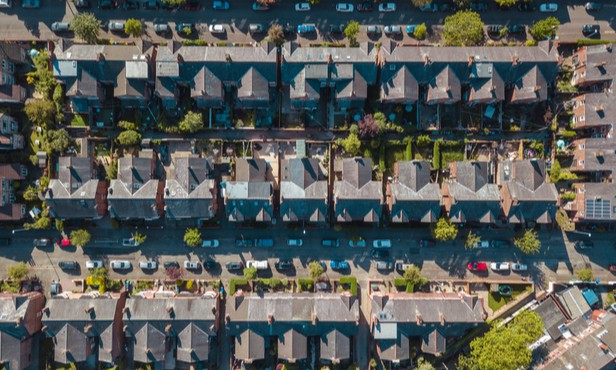
This is as a result of average house prices rising month-on-month by 0.7% in February.
On an annual basis, average house prices rose by 6.9%.
Robert Gardner, chief economist at Nationwide, said: “This increase is a surprise.
“It seemed more likely that annual price growth would soften further ahead of the end of the stamp duty holiday, which prompted many people considering a house move to bring forward their purchase.
“While the stamp duty holiday is not due to expire until the end of March, activity and price growth would be expected to weaken well before that, given that the purchase process typically takes several months (note that our house price index is based on data at the mortgage approval stage).
“It may be that the stamp duty holiday is still providing some forward momentum, especially given the paucity of properties on the market at present.
“Shifts in housing preferences may also be providing a more significant boost to demand, despite the uncertain economic outlook.
“Many peoples’ housing needs have changed as a direct result of the pandemic, with many opting to move to less densely populated locations or property types, despite the sharp economic slowdown and the uncertain outlook.
“As a result, the outlook for the housing market is unusually uncertain. There is scope for shifting housing preferences to continue to boost activity, especially if there is further policy support in the Budget.
“Nevertheless, if labour market conditions weaken as most analysts expect, it is likely that the housing market will slow in the months ahead.”
Nigel Purves, chief executive of Wayhome, added: “While the pace of house price growth over the past few months has been largely reflective of buyers pushing up demand ahead of the stamp duty deadline, people’s changing property needs have also brought forward purchases.
“The market now waits with baited breath to find out whether the deadline ends up being extended for a further three months or not, and what the long-term impact of either choice will be.
“As a result of the pandemic, increasingly we are seeing lenders ask potential buyers for a deposit of at least 10% to help alleviate any economic concerns.
“For many, this tougher requirement can leave them feeling they have no choice but to rent, and that home ownership is unattainable.
“Going forward, it’s vital that the industry works together to raise awareness of other innovative ways to help get people on the property ladder.”
Mike Scott, chief analyst at Yopa, said: “Both the impending end of the stamp duty holiday and the pandemic-induced levels of unemployment and under-employment would be expected to hit house prices, but prices are currently being supported by strong demand and low supply.
“Many new-build projects were delayed last year, which is hitting the supply of new homes. And many people are now looking towards a different lifestyle after the pandemic, in a different home.
“On Wednesday, the Chancellor is expected to extend the stamp duty holiday, at least for purchases that are already in progress, and to introduce new measures to encourage lenders to offer first-time buyer mortgages of up to 95% of the purchase price.
“Both of these steps will further support demand, and thus we expect to see prices continue to rise in the immediate future.”
Miles Robinson, head of mortgages at Trussle, emphasises the benefit of a tapered end to the stamp duty following this news.
He added: “UK house prices have unexpectedly increased month-on-month, which suggests that the stamp duty holiday is still providing some momentum within the market.
“It’s now expected that Rishi Sunak will extend the tax break by three months in the Budget tomorrow, so buyers may be pushing forward with their purchases to benefit from the tax relief.
“However, our research shows that the economy could benefit from a £28bn injection if the government considered a tapered ending to the stamp duty holiday rather than sticking to a hard stop.
“This would involve guaranteeing the tax break to buyers who received a mortgage offer, for example before 1 February, helping to avoid the collapse of property chains dependent on the savings from the holiday to complete.
“Extending the deadline by three months will only delay the current cliff-edge deadline that the market faces, and will continue to pose a risk to property transactions later down the line.
“The Budget is tomorrow, and we’re calling on the Government to consider taking another look at how to bring the scheme to an end.”



